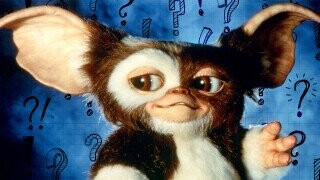Sexual Anxiety? Racism? The Vietnam War? No One Knows What ‘Gremlins’ Is a Metaphor For

The only holiday movie in which a grotesque puppet monster gets gruesomely microwaved to death, Gremlins is widely considered to be an 1980s classic, spawning a gloriously deranged sequel, oodles of merchandise and now an animated prequel series that may or may not delve into the Gremlins’ backstory in which they were created by an alien genetic experiment gone wrong.
Click right here to get the best of Cracked sent to your inbox.
But despite its cultural ubiquity, no one seems to be able to agree on what Gremlins is actually about. The Gremlins are anarchic cartoon monsters spawned by an innocuous, adorable Mogwai. The Mogwai, Gizmo, is totally harmless, but only if its owner can’t follow three important rules: no bright lights, don’t let them get wet and never feed them after midnight.
Don't Miss
It’s clear that Gizmo and the Gremlins are a potent metaphor for something — but what?
While the sequel is a more conspicuous satire of corporate media, people have pretty varied opinions about the deeper meaning of the original film. Some particularly perverted websites have speculated that Gremlins is secretly all about sex, with the Gremlins representing young Billy’s repressed desires. If one doesn’t follow proper protocols, having sex/keeping Gremlins can lead to unplanned births:
If you need further evidence that the Gremlins are just Billy’s unbridled lust made manifest, one of them literally flashes the object of his desire: Phoebe Cates.
And the only way to get rid of these allegories for sexual maturation is by using an emblem of childhood; in this case, Billy screens Disney’s Snow White and the Seven Dwarfs.
On the other hand, many think that the movie is all about race. Complex, in fact, once called Gremlins one of the “most racist movies” ever made, arguing that the Gremlins represent white suburban fears of Black people as they’re “loud, break-dancing little monsters who devour fried chicken at an unprecedented pace.”
Professor Patricia Turner made many of these same points back in 1987 in her essay “Reel Blacks,” writing that Gizmo’s “malevolent offspring” seem to “reflect negative Afro-American stereotypes,” at one point even managing to “acquire shades and caps that cover their eyes.”
Gremlins could also be interpreted as a metaphor for the Vietnam War. After all, loads of 1980s and 1990s blockbusters can be read as belated responses to Vietnam, including Aliens, Predator and even Jumanji. In Gremlins, Gizmo is of Asian origin, found in a stereotypically mystical Chinatown shop. The story of Gremlins is one of white American hubris, in which an Eastern culture’s boundaries aren’t respected, and lots of people end up dying as a result. Given that Gremlins came out less than a decade after the Vietnam War ended, making a connection to it doesn’t feel like that much of a stretch.
When Mr. Wing reclaims Gizmo at the end of the movie, he doesn’t just condemn Billy and his father for their actions, but also all of America, stating that they’ve done with his Mogwai what “your society has done with all of nature’s gifts.”
And the idea of “Gremlins” is itself rooted in military history. In World War II, Gremlins were a fictional creature created to explain away random mechanical problems suffered by the Allies. These troublesome “Gremlins” were later enshrined in popular culture thanks to a Disney children’s book penned by Roald Dahl. World War II is also how the Gremlins of Gremlins get their name after former fighter pilot Mr. Futterman warns Billy, “You gotta watch out for foreigners because they put Gremlins in their machinery.”
So Gremlins is essentially reframing a Western military boogeyman as a threat that, ultimately, is only created as a result of American arrogance and incompetence — had Billy behaved with more consideration and respect, there would be no “Gremlins” at all, just a docile little fluff-ball that sounds like Howie Mandel.
You (yes, you) should follow JM on Twitter (if it still exists by the time you’re reading this).